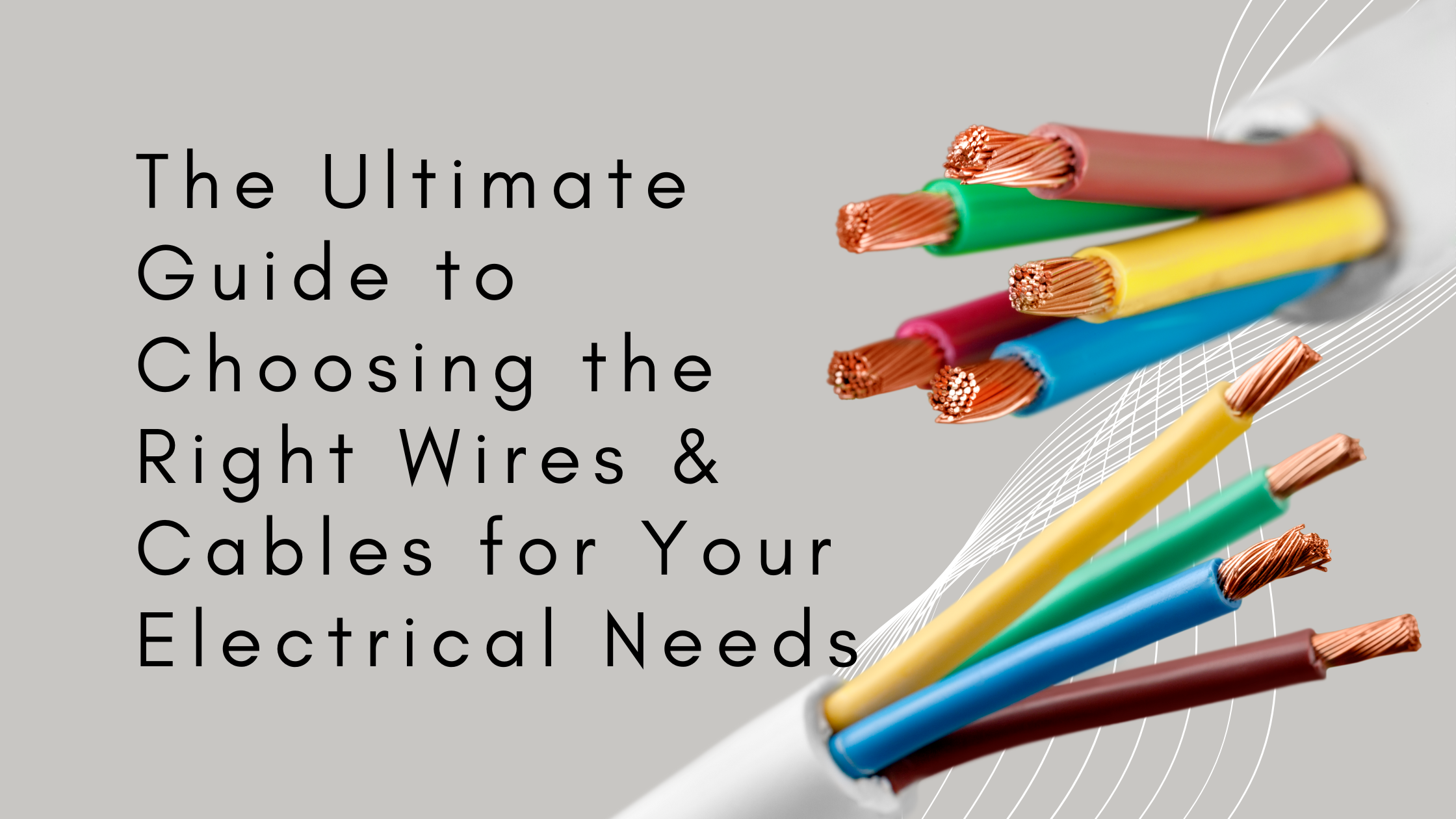Wires and cables form the foundation of any electrical system, whether it’s for a home, office, or industrial setup. Choosing the right type is crucial to ensure efficiency, safety, and durability. With a wide range of wires and cables in the market, making the right choice can be confusing. This guide will help you understand different types of wires and cables, their applications, and key factors to consider while selecting them.
Types of Wires & Cables
Copper vs. Aluminium Wires
Copper and aluminium are the two most commonly used conductors in electrical wiring.
- Copper Wires: Highly conductive, durable, and resistant to corrosion, making them ideal for both residential and industrial applications.
- Aluminium Wires: Lighter and more affordable, commonly used in large-scale power transmission. However, they have a lower conductivity compared to copper.
Single-Core vs. Multi-Core Cables
- Single-Core Cables: Contain only one conductor and are used in simple electrical installations, such as household wiring.
- Multi-Core Cables: Have multiple conductors within one sheath, making them suitable for complex wiring systems, such as industrial machinery and automation.
Flexible vs. Rigid Cables
- Flexible Cables: Made of finely stranded conductors, these are designed for applications where movement is frequent, such as robotics and household appliances.
- Rigid Cables: These have solid conductors and are used in fixed wiring applications like concealed electrical installations in buildings.
Shielded vs. Unshielded Cables
- Shielded Cables: Come with an additional protective layer to reduce electromagnetic interference (EMI), making them ideal for sensitive electronic devices.
- Unshielded Cables: These are more affordable and commonly used in residential and general electrical applications.
Key Factors to Consider While Choosing Wires & Cables
Voltage Rating
The voltage rating of a cable determines its capacity to handle electrical loads. Using a cable with an insufficient voltage rating can lead to overheating and electrical hazards. Always check the voltage rating before making a purchase.
Insulation Material
The insulation of a wire protects it from external damage and enhances safety. Common insulation materials include:
- PVC (Polyvinyl Chloride): Flexible and moisture-resistant, widely used in domestic wiring.
- XLPE (Cross-Linked Polyethylene): Offers better heat resistance and is commonly used in industrial applications.
- Rubber Insulation: Ideal for extreme weather conditions and outdoor applications.
Wire Gauge & Thickness
Wire thickness (measured in SWG or mm²) determines its current-carrying capacity.
- Thicker wires can carry more current and are suitable for heavy-load appliances like air conditioners.
- Thinner wires are used for low-power applications like lighting circuits.
Fire & Heat Resistance
For safety, it’s important to choose fire-resistant and heatproof cables, especially in high-risk environments such as kitchens, industries, and commercial buildings. Fire-retardant cables prevent the spread of fire and enhance overall safety.
Application & Environment
Different environments require specific types of cables:
- Indoor Wiring: Standard PVC-insulated wires are sufficient.
- Outdoor Wiring: UV-resistant and weatherproof cables are needed.
- Industrial Use: Heavy-duty cables with additional protection against chemicals, heat, and moisture.
Common Uses of Wires & Cables
| Wire Type | Common Applications |
|---|---|
| Copper Wire | Household wiring, industrial use, electrical panels |
| Aluminium Wire | Power transmission, overhead power lines |
| Single-Core Cable | Home wiring, lighting circuits |
| Multi-Core Cable | Industrial automation, communication networks |
| Flexible Wire | Electric appliances, extension cords |
| Shielded Cable | Audio/video systems, data transmission |
Conclusion
Choosing the right wires and cables is essential for ensuring a safe and efficient electrical system. Whether you are installing wiring in your home, office, or factory, always opt for high-quality, certified products. At Poonam Electricals, we offer a wide range of premium-quality wires and cables that meet industry standards. Always consult an expert before making a purchase to ensure the best performance and longevity of your electrical installations.

